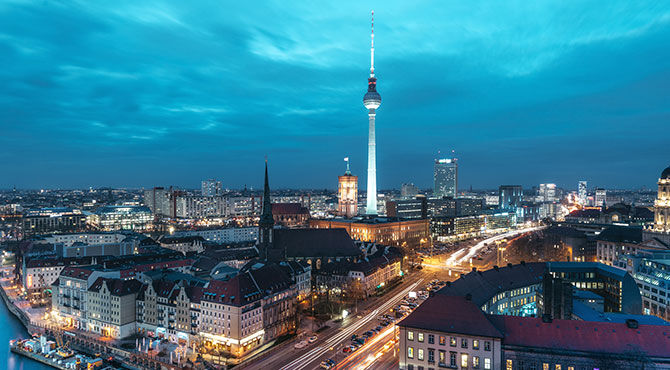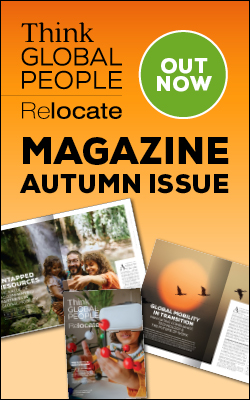Germany: A tale of two cities?
Germany’s twin reputations for stability and productivity makes it an attractive place to do business. But there are changes afoot – and not just of a new Chancellor by 2021. Ruth Holmes explores how the country is using its robust finances, high employment rates and strategic partnerships to strengthen its position in the global economy.

Frankfurt: Europe’s financial centre?
While traditional big-hitters Frankfurt (40 companies) and Paris (41) trail Dublin (100) and Luxembourg (60) by some margin in the race to be the EU’s next big financial centre, they have taken the lion’s share of banking and investment-bank moves. In Frankfurt’s case, 87% of those 40 companies are banks and investment banks. And perhaps the move here is with good reason.Speaking last year at a banking conference in Frankfurt, Germany’s Minister of Finance Olaf Scholz hinted that a Germany-centred European-wide approach to banking was needed to buttress the sector’s competitiveness. He said, “The question of how to achieve the scale and size to compete globally is something that must be discussed. When it’s about reshaping the European banking industry as a whole, of course, we need a situation that makes headquarters in Germany or Frankfurt clearly possible.”Banking analysts are predicting a round of mergers and acquisitions to achieve the coherent financial structure Scholz is calling for, with Deutsche Bank and Commerzbank starting formal talks in March about a merger.Outside of the banking sector, change is also underway. While Germany’s robust export-led economy is underpinned by high employment and job creation rates, global trade headwinds have caused the European Commission to slash its growth forecast for Germany from 1.8% to 1.1% in 2020.Despite Germany having among the most advanced manufacturing capabilities in the world, US car maker Ford plans to cut 5,000 jobs there – as well as others across Europe. The company is seeking a return to profit amid rising consumer interest in self-driving and eco vehicles, and the waning appeal of diesel cars.Mobilising talent
But it’s not all doom and gloom. The changes and relative uncertainty are filtering down into mobility. Germany’s high employment rates and the need for reskilling in artificial intelligence (AI) mean the German government is pledging to make it easier for people from outside the EU with certain specialisms to gain a work visa.Talent is also shaping the mobility offering. Until recently, banks relocating had been taking a tough line on moving staff, with policies stating that relocations must be full and final. However, this view has now shifted – perhaps in line with the mood for mergers and acquisition – with more flexible approaches being reported.A venture between capitals
The move into even more advanced manufacturing and AI is seeing Berlin build on its creative capacities and partner with London, a world-leader in fintech and tech. In March, the two capitals' economic development agencies – London & Partners and Berlin Partners – announced a landmark partnership to promote greater trade and investment.Rajesh Agrawal, London’s Deputy Mayor for Business and chairman of London & Partners said, “London and Berlin are two of the world’s leading hubs for technology, innovation and creativity. We see lots of opportunities for collaboration, especially in fast-growing areas such as fintech and smart cities.”Ramona Pop, Deputy Mayor of Berlin, added, “The UK is one of Berlin’s most important economic partners and Brexit makes a close collaboration all the more important. We want to shape our common future in Europe: at this moment of divergence, we come closer together.”Subscribe to Relocate Extra, our monthly newsletter, to get all the latest international assignments and global mobility news.Relocate’s new Global Mobility Toolkit provides free information, practical advice and support for HR, global mobility managers and global teams operating overseas.
 Access hundreds of global services and suppliers in our Online Directory
Access hundreds of global services and suppliers in our Online Directory
©2025 Re:locate magazine, published by Profile Locations, Spray Hill, Hastings Road, Lamberhurst, Kent TN3 8JB. All rights reserved. This publication (or any part thereof) may not be reproduced in any form without the prior written permission of Profile Locations. Profile Locations accepts no liability for the accuracy of the contents or any opinions expressed herein.


























